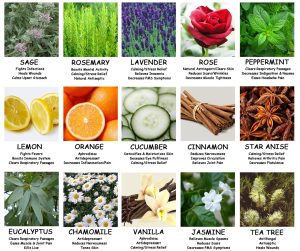
Herbal remedies have been used for centuries to treat various ailments and promote overall well-being. These natural remedies are derived from plants and have shown promising results in alleviating common health issues without the side effects associated with conventional medicine. Whether you are dealing with a cough, a headache, or an upset stomach, there are several herbal remedies that may offer relief.
1. Echinacea for Common Colds
Echinacea is a popular herb known for its immune-boosting properties. It is often used to prevent and treat common colds. This herb stimulates the production of white blood cells, which play a crucial role in fighting off infections. Echinacea can be consumed in the form of capsules, tea, or tinctures.
2. Peppermint for Digestive Issues
Peppermint is widely recognized for its soothing effects on the digestive system. It helps relax the muscles of the gastrointestinal tract, relieving symptoms such as bloating, indigestion, and abdominal discomfort. Peppermint tea or capsules are commonly used to treat digestive issues.
3. Chamomile for Sleep Disorders
Chamomile is a gentle herb that has been used for centuries to promote relaxation and alleviate sleep disorders. It is well-known for its calming properties and can help reduce anxiety and stress, making it easier to fall asleep. Chamomile tea is a popular and effective remedy for insomnia.
4. Ginger for Nausea
Ginger is a potent herb that has been used for centuries to alleviate nausea and vomiting. It is particularly effective in relieving symptoms associated with motion sickness, morning sickness during pregnancy, and chemotherapy-induced nausea. Ginger can be consumed as tea, capsules, or fresh ginger root.
5. Lavender for Headaches
Lavender has a calming aroma that is known to relieve headaches and migraines. It helps relax the mind and body, reducing tension and promoting restful sleep. Lavender essential oil can be applied topically or used in aromatherapy to ease headache symptoms.
6. Turmeric for Inflammation
Turmeric is a popular spice with powerful anti-inflammatory properties. It contains curcumin, a compound that helps reduce inflammation in the body. Turmeric can be used in cooking or consumed as a supplement to help alleviate symptoms of chronic inflammation, such as joint pain and swelling.
7. Valerian Root for Anxiety
Valerian root is a natural sedative that has been used for centuries to treat anxiety and promote relaxation. It can help reduce restlessness, nervousness, and insomnia. Valerian root is commonly consumed as a tea or taken in capsule form.
Conclusion
Herbal remedies offer a natural and effective alternative to traditional medicine for a wide range of common ailments. However, it’s important to consult with a healthcare professional before incorporating herbal remedies into your routine, especially if you have any underlying medical conditions or are taking prescription medications. With proper guidance, herbal remedies can be a valuable addition to your wellness toolkit.

